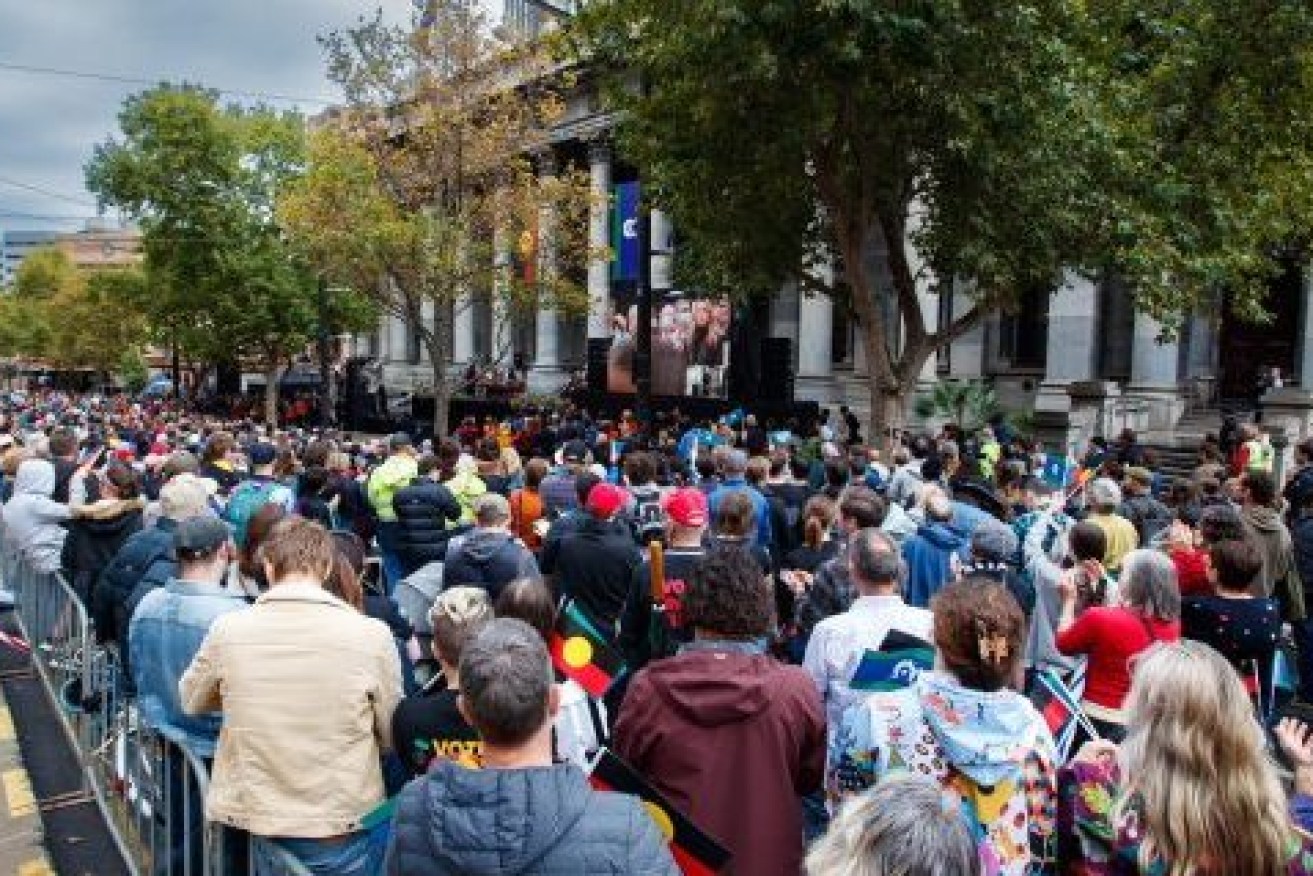SA parliament passes voice legislation
South Australia has become the first state to allow an Indigenous voice to parliament with Premier Peter Malinauskas declaring it the most powerful show of respect towards Australia’s First Nations people.

North Terrace in the city is part of a new precinct where police have the power to search and ban people in a new grid in the CBD. Photo: AAP/Matt Turner
The Labor government’s legislation passed the House of Assembly in a special sitting on Sunday and was immediately proclaimed by Governor Frances Adamson in a rare public ceremony in front of a cheering crowd who gathered to watch the proceedings outside parliament house in Adelaide.
Malinauskas said South Australia had a proud history of welcoming people from other cultures, and the opportunities for prosperity passed from one generation to the next was a remarkable Australian story.
But he said it was an even more remarkable Australian tragedy that the one group of people left most behind for the past 200 years were the people who, for more than 65,000 years, had provided “great care and custodianship for the land we stand on today”.
“For as long as Aboriginal Australia is excluded in sharing in our nation’s prosperity we carry an injustice that weighs on us all,” the Premier said.
In passing the voice legislation, Malinauskas said South Australia had accepted an invitation to walk with Indigenous people on a new path towards inclusion and reconciliation.
“There are no more powerful deeds than South Australia becoming the first place in our nation to pass a law enshrining an Indigenous voice to our parliament,” he said.
“Who knows how we might benefit from drawing on 65,000 years of wisdom.
“I firmly believe that there are more than a few things that this parliament can learn from the longest-living continuous culture that the world has ever seen.”
The SA legislation allows for six regions to be established across the state each with directly elected representatives.
Two members from each group will then form the State First Nations Voice, which can address either house of state parliament on legislation of interest to Aboriginal people.
Some administrative work remains to be done, including finalising the boundaries for each of the representative regions, but the state government hopes to have the system operational by the end of the year.
Signing the bill into law, Governor Adamson said South Australia’s founders had good intentions toward Aboriginal people.
“History shows, regrettably, that they did not come to fruition,” she said.
“Today, I restate my commitment to supporting the process of reconciliation in our state and to working side by side with Aboriginal people and non-Aboriginal people to achieve this goal.”
South Australia’s Commissioner for First Nations Voice, Dale Agius, said the passage of the legislation was the start of an exciting chapter in both the state’s and nation’s history.
“For too long our voices have been excluded or dismissed. From today we have the right to be heard, at the highest level of decision-making in this state,” he said.
“After today, more than ever, Aboriginal and Torres Strait Islander people in South Australia will be able to have their say on the decisions that affect their lives.
“And more importantly, they will have the chance to share with the parliament and the government their aspirations for the future. This is about generational change, to be included and to be heard.”
-AAP




